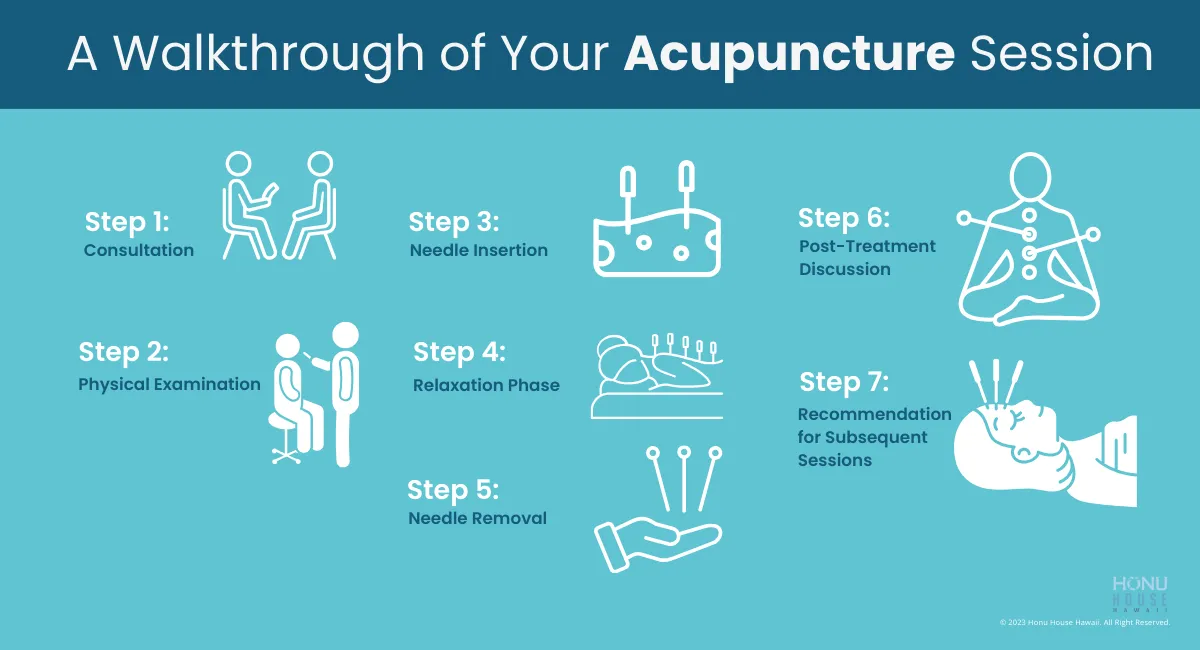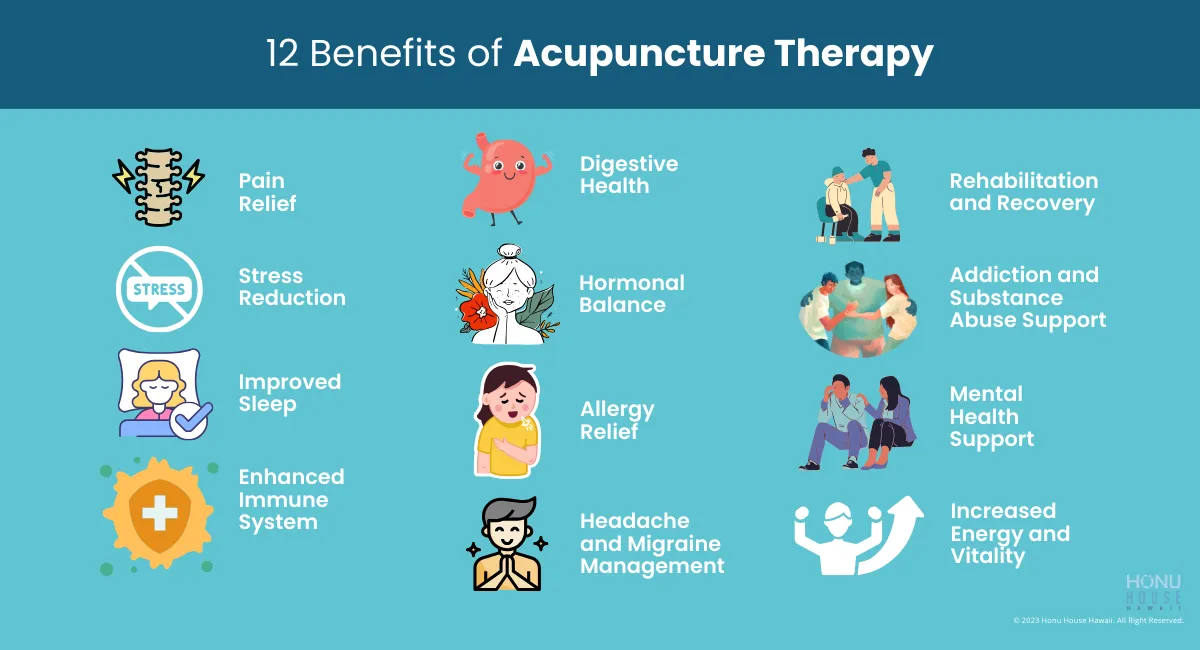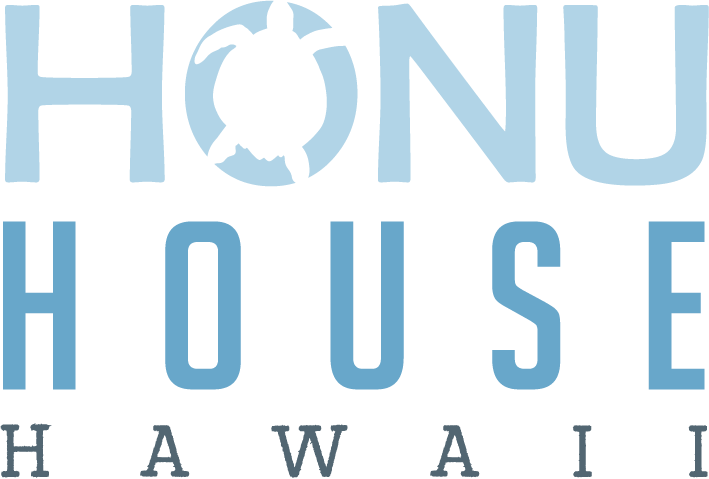
Elevate Your Health: Exploring the Power of Acupuncture Therapy
-
By John Burke
-
November 20, 2023
If you’re new to alternative treatments, acupuncture can seem pretty daunting. Acupuncture is an ancient Chinese medicine therapy that involves inserting tiny needles into specific points on the body. Sounds pretty painful, doesn’t it? Well, while it may sound like it does more harm than good, actually the health benefits of acupuncture are numerous.
In this article, we’ll explore what acupuncture is, the conditions it can treat, and its risks and benefits. We’ll also explore how to choose an acupuncturist in Hawaii and what to expect during an acupuncture session.
So, whether you’re curious about acupuncture in Hawaii or considering trying it for a health condition, in this post, we’ll shed light on the power of the centuries-old practice and how it can elevate your health.
What Is Acupuncture Therapy?
Acupuncture therapy is a healing practice rooted in traditional Chinese medicine (TCM) that dates back hundreds of years. It’s based on the notion that the human body has an intricate network of energy pathways known as meridians.
These meridians, when unclogged, facilitate the movement of vital life force energy, known as Qi (pronounced ”chi”), throughout the body. However, when they’re clogged, the disruption of energy flow can lead to various physical and emotional ailments.
Acupuncture physical therapy aims to restore the smooth flow of energy within the body by placing thin, sterilized needles along specific acupuncture points along the meridians. The gentle insertion of these needles at various acupuncture points may stimulate the body’s natural defenses, helping to alleviate pain and restore equilibrium.
What to Expect During an Acupuncture Session
During an acupuncture session, the process unfolds as follows:
Thorough Consultation
Your session kicks off with an in-depth consultation with the acupuncturist. They’ll inquire about your medical history, underlying health issues, and treatment objectives.
Physical Examination
Following the consultation, the acupuncturist proceeds with a physical examination, which may involve checking your pulse and tongue. These evaluations help assess your body’s energy state and lay the foundation for a personalized treatment plan.
Needle Insertion
Once the examination is complete, the acupuncturist skillfully inserts thin, sterile needles into specific points on your body. You might experience a mild tingling sensation at the insertion sites, which is entirely normal.
Relaxation Phase
With the needles in place, you’re encouraged to relax for approximately 20-30 minutes. Many clients find this stage deeply soothing and may even drift into a relaxed state or even sleep.
Needle Removal
After the prescribed time, the acupuncturist gently removes the needles. This process typically induces minimal sensation, often described as painless.
Post-Treatment Discussion
Following needle removal, you have the opportunity to discuss your session experience with the acupuncturist. Any post-treatment concerns or inquiries can be addressed at this point. The acupuncturist may also offer guidance on post-treatment care if you encounter minor side effects, such as a mild headache.
Recommendation for Subsequent Sessions
Depending on your health goals and the acupuncturist’s assessment, they may recommend further sessions. While some individuals benefit from multiple sessions, others achieve their desired results with fewer visits. Generally, acupuncture is most effective when administered over an extended period.

What Are the Benefits of Acupuncture Therapy?
Acupuncture is a versatile alternative treatment that can address a variety of physical and emotional health issues. While it isn’t a magic bullet for all ailments, various studies have found that acupuncture is an effective treatment for numerous conditions, often complementing conventional medical approaches.
The National Center for Complementary and Integrative Health (NCCIH) states that acupuncture can help manage the following conditions:
Pain
Acupuncture is renowned for its ability to alleviate various types of pain, including neck and back pain, postoperative pain, cancer pain, chronic pelvic pain syndrome, myofascial pain syndrome, osteoarthritis pain, and migraines and headaches.
Digestive disorders
Acupuncture can offer relief for patients with irritable bowel syndrome (IBS) when complemented with conventional treatments.
Seasonal allergies
Acupuncture can assist in managing seasonal allergies like hay fever and allergic rhinitis.
Stress incontinence
Acupuncture can help to reduce stress incontinence — a condition that exerts pressure on the bladder, causing urine to leak.
Depression
Acupuncture can help to reduce the severity of depression.
Asthma
Acupuncture can provide asthma patients with some relief, though it doesn’t improve lung function.
Breaking Free from Addiction Shackles
If you’re on the path to ditching unhealthy habits, acupuncture lends its support. Particularly, in the realm of smoking cessation, those tiny needles become the partners in your journey to break free from addiction.
Immunity Armor
Acupuncture isn’t just about relief; it’s about resilience. Boost your body’s immunity, turning it into a fortress against invading illnesses. Consider acupuncture your secret weapon in the battle for health supremacy.
Fertility Bloom
Acupuncture isn’t just for the present; it’s an investment in the future. Unlock the potential of fertility as acupuncture whispers encouragement to aspiring parents, enhancing the odds of conception.
Vital Energy Unleashed
Beyond addressing specific ailments, acupuncture is a conduit for tapping into your body’s vital energy. It’s not just about healing; it’s about unlocking the reservoirs of energy within, letting you radiate vitality in every step of your journey.
PMS Harmony
Ladies, rejoice! Acupuncture has shown promise in alleviating the symptoms of premenstrual syndrome (PMS). Bid farewell to mood swings, bloating, and cramps as acupuncture lends a helping hand during that time of the month.
Cognitive Clarity
Acupuncture isn’t just a balm for the body; it’s a tonic for the mind. Studies suggest that acupuncture may have cognitive benefits, improving memory, concentration, and overall mental clarity. It’s like a mental workout for a sharper, more focused you.
Acupuncture is not just a treatment but a holistic experience that touches every aspect of your well-being. So, whether you’re seeking relief from pain, or aiming for mental clarity, let acupuncture be the maestro orchestrating the symphony of your health.

What Are the Risks of Acupuncture Therapy?
Acupuncture is generally considered safe when performed by a licensed practitioner. However, while acupuncture is a safe and low-risk therapy, some potential risks include:
Needle discomfort
You may experience minimal discomfort during acupuncture, such as tingling sensations or dull aches. However, this discomfort usually doesn’t last long and subsides after a couple of minutes.
Bruising and soreness
Minor bruising or soreness may occur at the insertion sites, especially if you’re undergoing an acupuncture procedure for the first time.
Bleeding
Bleeding may occur at the insertion sites, but it usually subsides after a short time.
Infection risk
Professional acupuncturists use sterilized, disposable needles. However, there is a slight risk of infection if the needles aren’t properly sterilized or reused.
Needle breakage
In rare cases, a needle may break off in the skin. While it usually isn’t a severe issue, it may require medical attention to remove the needle.
Besides these risks, other potential risks of acupuncture include dizziness, fainting, and nausea. Additionally, in extremely rare cases, nerve or organ damage may occur. However, these issues are exceptionally uncommon when the procedure is performed by a qualified acupuncturist who follows proper protocols.
What to Consider When Choosing an Acupuncturist
When selecting an acupuncturist, here are some essential factors you should keep in mind:
Licensing and credentials
Ensure the acupuncturist you choose is licensed and certified by the relevant regulatory body in your area. In Hawaii, acupuncturists must pass the National Certification Commission for Acupuncture & Oriental Medicine (NCCAOM) exam to practice acupuncture.
Experience
Choose an acupuncturist with a track record of successfully treating conditions similar to the one you’re seeking treatment for.
Referrals and recommendations
Seek referrals from family and friends who have had a positive experience with an acupuncturist. They can provide invaluable insights into the acupuncturist’s reputation and effectiveness.
Online reviews
Reviews and testimonials from past clients can provide insights into an acupuncturist’s reputation and effectiveness. But, remember, individual experiences may vary.
Hygiene standards
Visit the acupuncture clinic to assess its cleanliness. Choose an acupuncturist who has a clean and tidy treatment room.
Location
Generally, acupuncture isn’t a one-time treatment. It requires several sessions. Look for an acupuncture clinic near you to ensure you attend sessions regularly.
Insurance coverage
Some insurers cover acupuncture, but others don’t. If your insurer covers acupuncture, inquire about the conditions covered.
Cost
Inquire about the number of acupuncture sessions required and the cost of each. While some acupuncturists may offer flexible payment plans, others may not.
In addition to these factors, you should consult your doctor before starting acupuncture treatment. While acupuncture can assist with treating various conditions, it can pose health risks if you’re pregnant, have a pacemaker, or have a bleeding disorder.
Conclusion
Acupuncture is a helpful alternative treatment for various conditions. Acupuncture can help to alleviate pain, manage allergies, improve sleep, and enhance emotional well-being. It can also help to manage drug addiction when used in conjunction with other interventions like drug detoxification.
However, acupuncture isn’t a replacement for conventional medicine. It’s a complementary treatment. So, don’t use acupuncture as a substitute if you’re on medication.
Also, if you’re considering starting acupuncture in Kona, consult your physician to determine if it’s right for you.
Looking for acupuncture therapy near you? At Honu House Hawaii, we have a team of qualified and licensed acupuncturists. Ready to start your transformative journey towards a healthier, more balanced life? Contact us today to learn more about acupuncture and other alternative therapies.
FAQs
Is Acupuncture Painful?
Acupuncture generally isn’t painful. Most people describe the sensation after needle insertion as slightly tingling, but some don’t feel anything.
How Many Acupuncture Sessions Do I Need to See Noticeable Changes?
The acupuncture sessions required vary depending on your specific condition and goals. While some people experience immediate relief, others may need several sessions to achieve desired results. Discuss your treatment plan with your acupuncturist to determine the number of sessions you need.
Can Acupuncture Be Combined With Other Medical Treatments?
Yes, acupuncture can complement conventional medical treatments. However, consult your physician before starting acupuncture sessions if you’re undergoing other treatments to determine if acupuncture suits you.
How Do I Find a Reputable Acupuncture Clinic Near Me?
To find a reputable acupuncturist near you, look for qualified and licensed practitioners in your area, seek recommendations from family and friends, and read online reviews. Also, interview potential acupuncturists to ensure their treatment approach aligns with your needs and goals.
Can Acupuncture Help With Drug Addiction?
Acupuncture has shown promise as an alternative therapy for people dealing with drug addiction. While it isn’t a standalone treatment for drug addiction, it can play an essential role in recovery. Acupuncture can help by reducing cravings, alleviating withdrawal symptoms, promoting relaxation, and enhancing overall well-being.
